Related Research Articles

Edward Montagu, 2nd Earl of Manchester, KG, KB, FRS was an important commander of Parliamentary forces in the First English Civil War, and for a time Oliver Cromwell's superior.
Sir is a formal honorific address in English for men, derived from Sire in the High Middle Ages. Both are derived from the old French "Sieur" (Lord), brought to England by the French-speaking Normans, and which now exist in French only as part of "Monsieur", with the equivalent "My Lord" in English. Traditionally, as governed by law and custom, Sir is used for men who are knights and belong to certain orders of chivalry, as well as later applied to baronets and other offices. As the female equivalent for knighthood is damehood, the suo jure female equivalent term is typically Dame. The wife of a knight or baronet tends to be addressed as Lady, although a few exceptions and interchanges of these uses exist.

The Most Honourable Order of the Bath is a British order of chivalry founded by King George I on 18 May 1725. The name derives from an elaborate medieval ceremony for preparing a candidate to receive his knighthood, of which ritual bathing was an element. While not all knights went through such an elaborate ceremony, knights so created were known as 'knights of the Bath', and likely from the upper classes.

The title of Knight Bachelor is the basic rank granted to a man who has been knighted by the monarch but not inducted as a member of one of the organised orders of chivalry; it is a part of the British honours system. Knights Bachelor are the most ancient sort of British knight, but Knights Bachelor rank below knights of chivalric orders. A man who is knighted is formally addressed as "Sir [First Name] [Surname]" or "Sir [First Name]" and his wife as "Lady [Surname]".

Duke of Manchester is a title in the Peerage of Great Britain, and the current senior title of the House of Montagu. It was created in 1719 for the politician Charles Montagu, 4th Earl of Manchester. Manchester Parish in Jamaica was named after the 5th Duke, while its capital Mandeville was named after his son and heir. The current Duke is Alexander Montagu, 13th Duke of Manchester, a controversial British and Australian citizen who lives in the United States and has served several prison sentences. He succeeded to the peerage in 2002 following the death of his father Angus Montagu, 12th Duke of Manchester, the last of the dukes to hold a seat in the House of Lords.

Sir Roger de Mortimer, 2nd Earl of March, 4th Baron Mortimer of Wigmore, KG was an English nobleman and military commander during the Hundred Years' War.

The Most Eminent Order of the Indian Empire is an order of chivalry founded by Queen Victoria on 1 January 1878. The Order includes members of three classes:
- Knight Grand Commander (GCIE)
- Knight Commander (KCIE)
- Companion (CIE)

Henry Scott, 3rd Duke of Buccleuch and 5th Duke of Queensberry KG FRSE was a Scottish nobleman and long-time friend of Sir Walter Scott. He is the paternal 3rd great-grandfather of Princess Alice, Duchess of Gloucester, and the maternal 4th great-grandfather of Prince William of Gloucester and Prince Richard, Duke of Gloucester.
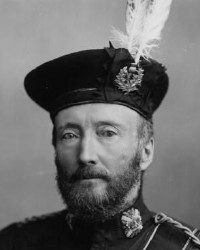
William Henry Walter Montagu Douglas Scott, 6th Duke of Buccleuch and 8th Duke of Queensberry, was a Scottish Member of Parliament and peer. He was the paternal grandfather of Princess Alice, Duchess of Gloucester, as well as a maternal great-grandfather of Prince William of Gloucester and Prince Richard, Duke of Gloucester, and a great-great-grandfather of Sarah, Duchess of York.
Sir Arthur Michael Palliser was a senior British diplomat who served as the Permanent Under-Secretary of State for Foreign Affairs from 1975 to 1982.
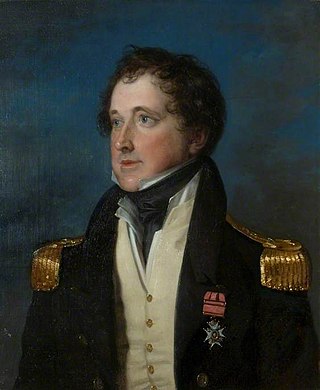
Vice-Admiral Sir William Augustus Montagu was a senior officer of the British Royal Navy during the French Revolutionary and Napoleonic Wars who served in a number of sea battles and was also in command of the naval brigade in the brief land campaign to capture Île de France in 1810. During his service he was present at the capture of numerous French frigates and later served in the War of 1812. After the end of the Napoleonic Wars he remained in service and commanded several ships in the Mediterranean before he retired from active service in 1837. He remained a commissioned officer and later rose through the ranks to become a vice-admiral. For his services he was knighted in the Royal Guelphic Order and made a Companion of the Order of the Bath.

Sir Leonard Benjamin Franklin OBE was an English barrister, banker and Liberal Party politician, of Jewish descent.
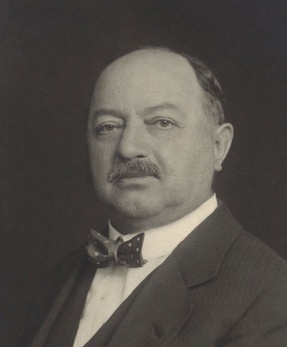
Sir Montagu Sherard Dawes Butler, was Governor of the Central Provinces of British India (1925–33), Lieutenant Governor of the Isle of Man (1933–37), and Master of Pembroke College, Cambridge (1937–48).

Guy Bryan, 1st Baron Bryan, KG was an English landowner, military and naval commander, courtier, diplomat, and administrator.
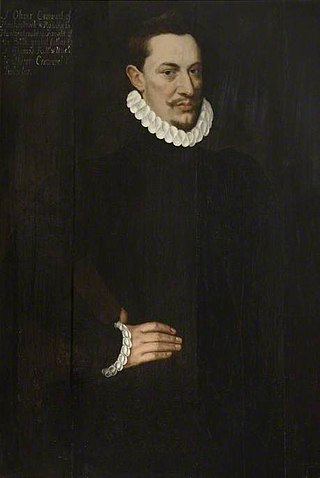
Sir Oliver Cromwell was an English landowner, lawyer and politician who sat in the House of Commons at various times between 1589 and 1625. He was the uncle of Oliver Cromwell, the Member of Parliament, general, and Lord Protector of England.
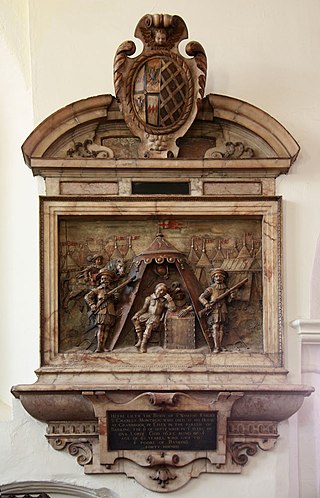
Sir Charles Montagu of Cranbrook Hall in the parish of Barking, Essex, was an English politician who sat in the House of Commons from 1614 to 1625.

William Montagu Hay, 10th Marquess of Tweeddale, KT, DL, known before 1878 as Lord William Hay or Lord William Montagu Hay, was a Scottish landowner, peer and politician. He was born at Yester House, near Gifford, East Lothian, and served in British India as a member of the Bengal Civil Service and later as a Liberal Member of Parliament.
Sir Richard Chiverton of the Worshipful Company of Skinners was Lord Mayor of London in 1658.

William Montagu, 2nd Earl of Salisbury, 4th Baron Montagu, King of Mann, KG was an English nobleman and commander in the English army during King Edward III's French campaigns in the Hundred Years War. He was one of the Founder Knights of the Order of the Garter.
Sir Charles Barry Shaw, was a Northern Irish barrister. From 1972 to 1989, he served as the Director of Public Prosecutions for Northern Ireland; he was the first holder of this post.
References
- ↑ "Knight Bachelor", Encyclopedia Britannica . Retrieved 5 April 2020.
- ↑ Shaw calls him "Montagu Charles Turner", but he is recorded as "Montagu Cornish Turner" in Who Was Who and The Times:"Turner, Sir Montagu Cornish", Who Was Who (online ed., Oxford University Press, December 2019), retrieved 6 April 2020; "Sir Montagu Turner", The Times , 17 December 1934, p. 18.